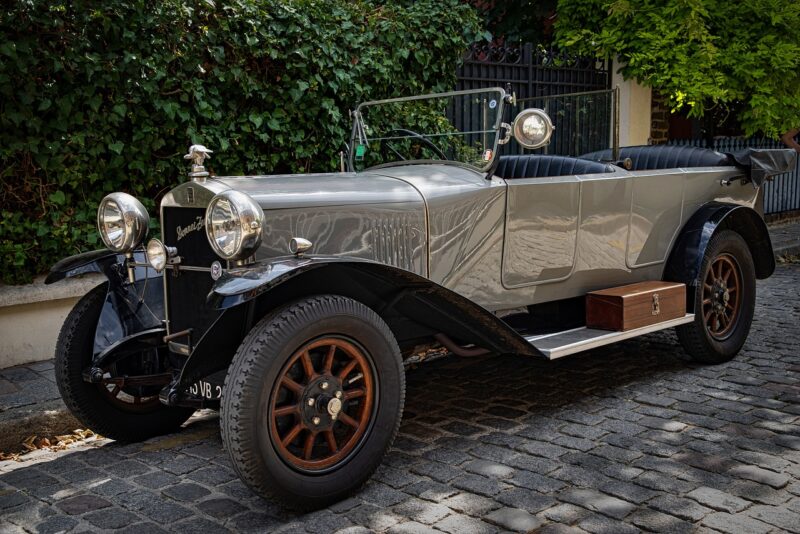Why Some Cars Have Become Iconic Symbols of Pop Culture
November 12, 2024

Cars have played a pivotal role in shaping modern culture, influencing our lifestyles, and becoming memorable symbols of various eras. From the classic muscle cars of the 1960s to the innovative electric vehicles of today, some cars transcend their mechanical purpose to become revered icons in popular culture. In this article, we will explore the journey of certain vehicles that have secured their places as cultural phenomena, examining the reasons behind their iconic status.
1. The Relationship Between Cars and Identity
Cars often reflect their owner’s identity, aspirations, and lifestyle choices. They are not merely modes of transportation; they can represent freedom, rebellion, or even luxury. Popular culture has depicted cars as extensions of character, influencing how they are perceived by society. Different models can embody contrasting values, attracting specific demographics and forging emotional connections.
For instance, a convertible sports car may symbolize youth and freedom, while an SUV might represent family-oriented choices and practicality. These associations often solidify a car’s status as an iconic cultural symbol.
2. The Power of Film and Television
Films and television shows have been instrumental in solidifying the status of certain cars in popular culture. Memorable vehicles often become characters in their own right, gaining fame that lasts long beyond the screen.
Consider the Ford Mustang from “Bullitt” (1968), which defined coolness through Steve McQueen’s thrilling chase scenes. The muscle car became synonymous with masculinity and rebellion, influencing generations of car enthusiasts.
Another example is the DeLorean DMC-12 from “Back to the Future” (1985). Its unique design and association with time travel have cemented its status as a pop culture icon. The car’s association with adventure and nostalgia resonates with audiences, ensuring its memorable place in cinematic history.
Moreover, films like “The Fast and the Furious” series have set a precedent for car culture, showcasing a variety of vehicles and sparking interest in car modifications and racing subcultures.
3. Design and Innovation
The design and engineering of a car can significantly contribute to its iconic status. Many legendary models showcase innovative technologies and striking aesthetics, making them recognizable and revered.
For example, the Volkswagen Beetle, with its distinctive rounded shape and simplicity, became an enduring symbol of the 1960s counterculture movement. It represented individuality, affordability, and a break from the conventional automotive designs of the time.
Additionally, the Tesla Model S represents the future of electric vehicles, breaking new ground in efficiency, design, and technology. Its sleek appearance and cutting-edge performance have made it a symbol of modern lifestyles and environmental consciousness.
4. Cultural Movements and Social Commentary
Cars have often been intertwined with important cultural movements, highlighting social issues and aspirations. They can serve as powerful symbols within various movements, reflecting societal shifts and changes in values.
The Chevrolet Impala, for example, became iconic within the African American community and in the hip-hop culture, often featured in lyrics and music videos. The car signifies a status of success and achievement, weaving itself into the fabric of cultural storytelling.
Conversely, during the rise of environmentalism in the late 20th century, compact and fuel-efficient cars like the Honda Civic became symbols of sustainability, often associated with conscientious consumption and lifestyle choices.
5. The Role of Marketing and Sponsorship
Effective marketing campaigns, sponsorships, and collaborations can elevate a car’s status in popular culture. Strategic branding efforts can create strong associations between a vehicle and an aspirational lifestyle.
Take the Jeep Wrangler, for example. Its robust advertising campaigns have linked the vehicle to adventure, exploration, and ruggedness. By sponsoring outdoor events and promoting a lifestyle centered around freedom and exploration, the Jeep becomes more than a car; it symbolizes a spirit of adventure.
6. Iconic Cars in Music and Art
Cars have often inspired artists and musicians, appearing in countless songs, paintings, and other forms of artistic expression. They serve as metaphors for various themes, from love and loss to rebellion and freedom.
The Cadillac Eldorado, for instance, has been celebrated in numerous songs across different genres, representing luxury and success. It evokes a certain lifestyle, often featured in imagery that depicts American wealth and elegance.
Additionally, contemporary artists have incorporated car culture into their works, acknowledging the car’s significance in our lives. Street art often showcases classic cars, further cementing their roles as cultural symbols.
7. The Evolution of Iconic Car Symbols
As society evolves, so do the symbols associated with cars. What was once considered iconic may change as new designs, technologies, and cultural values emerge. Electric vehicles and advancements in automation are transforming perceptions of car ownership and mobility.
Brands like Tesla and Lucid Motors are redefining what it means to be a car in popular culture; eco-friendliness and sustainability have become crucial factors in shaping the next generation of car icons.
Conclusion
The car has transcended its basic purpose of transportation to become a vital symbol of culture, identity, and social values. The vehicles that have emerged as iconic symbols reflect various aspects of society, from film and television to cultural movements and marketing strategies. Understanding the cultural significance of cars can provide insight into the values and aspirations of society.
As we look forward, it will be fascinating to witness how new technologies and shifting values will forge the next wave of iconic cars. Whether they represent innovation, nostalgia, or sustainability, these vehicles will continue to shape popular culture for years to come.







